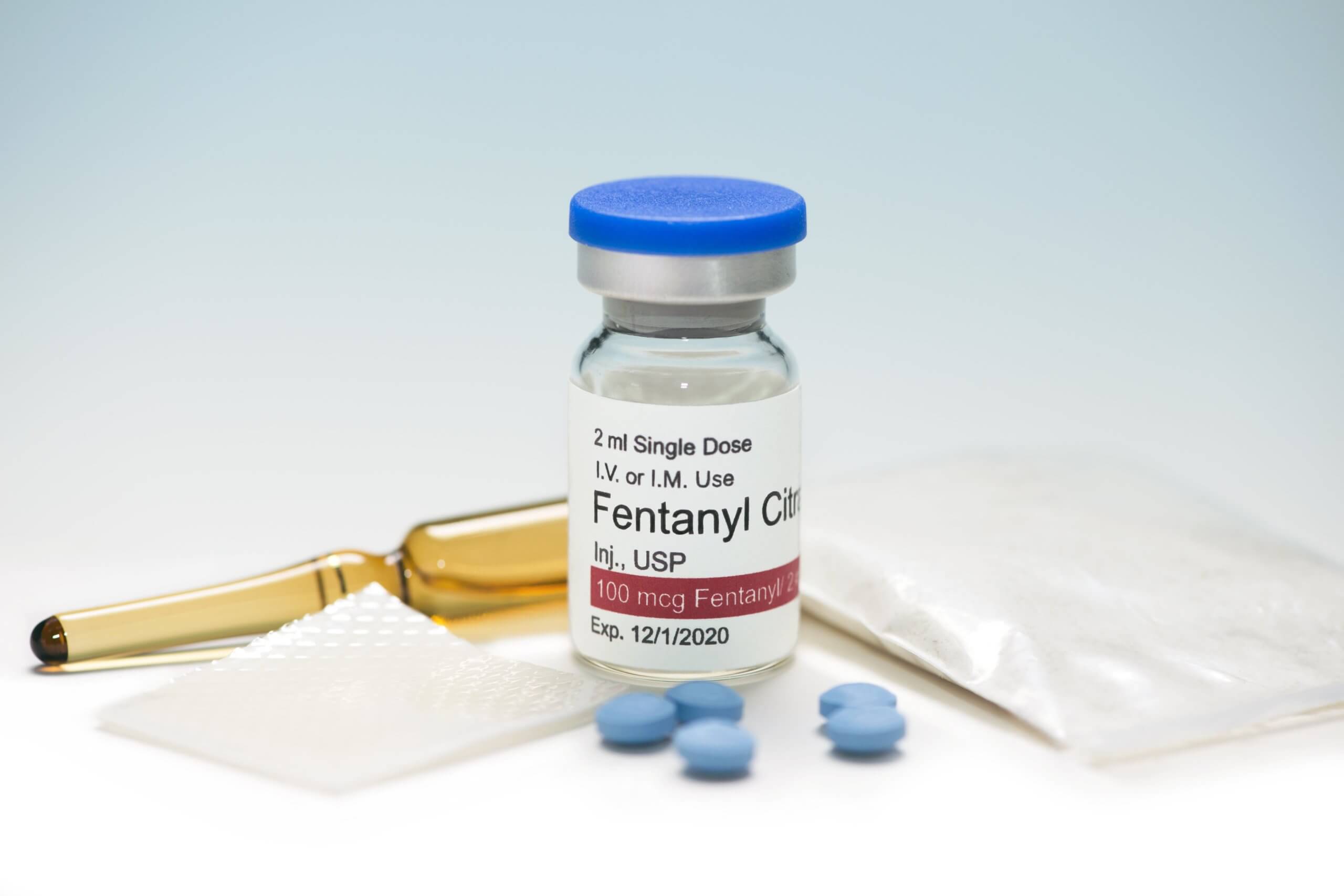Fentanyl is a powerful synthetic opioid prescribed for pain management. While other prescription opioids can be highly addictive, it can pose an even higher risk for misuse or abuse, as it is about 50-100 times more potent than morphine. In some cases, illicit opioids, like heroin, are cut with fentanyl to enhance their effects and get you hooked more easily.
Why Is Fentanyl Prescribed?
Fentanyl is prescribed primarily for severe pain management. Like other opioids, your doctor might prescribe it after surgery to help you recover and rest without extreme pain or discomfort. This drug can also treat chronic pain from health conditions like cancer and other medical issues.
However, due to its high potency, you might misuse your prescription to obtain the euphoric feelings or “high” produced by the drug. Prescription opioids have been a primary driver of the opioid crisis in the United States. Fentanyl has worsened the situation, being the primary drug involved in opioid-related overdose deaths.
How Has Fentanyl Affected the Opioid Crisis in the US?
Fentanyl has a significant effect on the opioid crisis in the United States. Due to the high potency, you can become addicted to it more easily than other opioids. The influence of this drug on overdose deaths can explain the rising number of opioid-related deaths in the US.
A majority of overdose deaths in the US involve fentanyl. According to the National Institute on Drug Abuse (NIDA), “In 2017, 59 percent of opioid-related deaths involved fentanyl compared to 14.3 percent in 2010.” Fentanyl is often mixed with other substances, including cocaine, MDMA (ecstasy), heroin, and methamphetamine, increasing the danger.
Why Is Fentanyl Dangerous?
Fentanyl is dangerous due to its high potency. You might not expect the effects, especially if you are accustomed to abusing other opioids. For example, you assume that you can use the same amount of it as other opioids, like heroin. However, an equal dose of fentanyl will affect you much more than heroin, potentially leading to an accidental overdose.
In addition, the mixing of fentanyl with other substances increases the risk of overdose. You might not be aware that this drug was added to another substance, and mixing substances can lead to overdose or addiction to both.
What Are the Effects of Opioids?
Opioids bind to opioid receptors in your brain. The opioid receptors are part of your brain’s way of managing pain and controlling other emotions. Fentanyl and other substances can “hijack” your brain’s chemicals and receptors, leading to unnaturally high feelings of happiness, euphoria, and relaxation.
Opioids also affect other bodily systems, like the respiratory system. When your respiratory system is depressed from the use of fentanyl, you might struggle to breathe or maintain consciousness.
Why Do People Get Addicted to Fentanyl?
No one using fentanyl as a prescription intends to become addicted. Your doctor might prescribe this medication to help you live a life free of pain, especially if less potent drugs or alternative treatments haven’t been effective.
However, the potency of this drug comes at a cost. You might begin pain management treatment by taking your medication as prescribed. As you continue using, the effects can start to wear off, which could tempt you to use more than your prescribed dosage. Due to chronic pain or other medical conditions, you might struggle to feel joy in life and find that fentanyl gives you the euphoria you crave but uncomfortable fentanyl withdrawal symptoms when you stop taking the drug.
When you start taking your prescription for reasons other than intended, you are misusing your medication. Prescription drugs, like fentanyl, can be misused even if you have no previous issues with substance abuse. Misuse of prescription opioids can lead to opioid abuse when you continue using despite adverse health and social consequences.
In addition, prescription fentanyl abuse could lead to other opioids and drugs. If you use up your prescription before your refill, you might seek other drugs to obtain the same high, leading to street drugs, feigning pain symptoms for more pills, or “doctor shopping” to get additional scripts.
What Are the Risks of Fentanyl Use?
One of the most significant risks of fentanyl use is developing an addiction or substance use disorder. The drug can change the way your brain works, leading to dependence to feel normal or “level out.” You might have intense cravings that feel uncontrollable.
Addiction can lead to severe mental and physical health risks. You could develop a mental health disorder or worsen an existing one. When you purchase drugs illegally, you risk getting arrested and can be more susceptible to traumatic experiences as you enter the dangerous world of illegal drugs.
Treating Addiction in Denver
If you or your loved one are misusing or abusing prescription fentanyl or using illicit opioids, it is critical to get help right away. Due to the high potency of fentanyl, you are at an increased risk of developing a substance use disorder or an accidental overdose death. At Continuum Recovery Center of Colorado, we offer multiple outpatient services to help you rediscover and reclaim your life. Call or visit our admissions page now to get the support you need.



